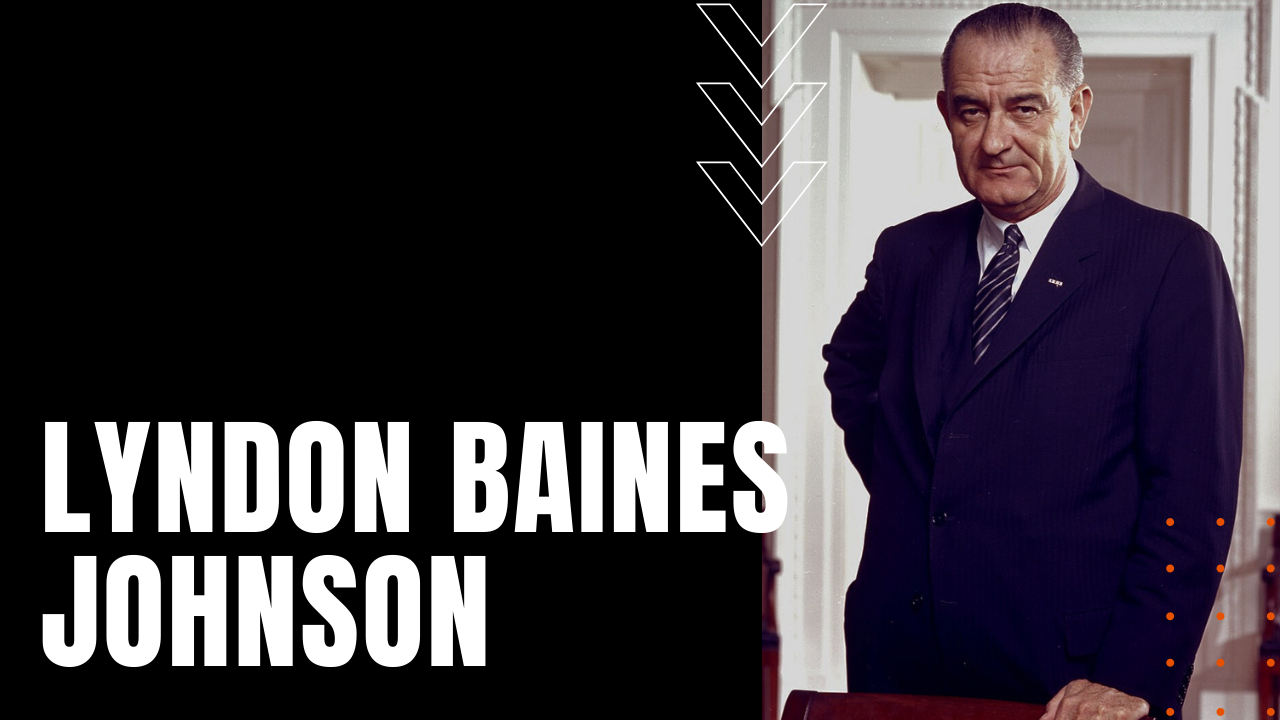Lyndon Baines Johnson

Born in 1908 Central Texas, Lyndon Baines Johnson graduated from Southwest State Teachers College while paying for his education by teaching disadvantaged Mexican-American students in south Texas, providing young Johnson with a first-hand taste of poverty and discrimination that would later bear fruit for a nation’s disadvantaged poor.
Enters Washington Politics
Moving to Washington, D.C. as a congressional secretary for Texas Representative Richard Kleberg, Johnson met and married Claudia Alta “Lady Bird” Taylor, who would later become a critical part of Johnson’s political success. His political career took off in earnest in 1937 when he was elected to the House of Representatives as a Democrat, becoming the first member of Congress to volunteer into the military when the United States entered World War Two in 1941, serving as a lieutenant commander in the U.S. Navy until all members of Congress were recalled to Washington in the summer of 1942.
Elected to U.S. Senate
Elected to the U.S. Senate in 1948—by a narrow margin of just 87 votes—Johnson became a driving force in Congress with his knack for pushing through key pieces of legislation, serving first as the minority leader of the Senate, followed by Senate majority leader when Democrats took control of Congress in 1955. Despite bad blood between Johnson and the Kennedys, in 1960, John F. Kennedy asked Johnson to be his running mate for his successful bid for the White House—only to be sworn in as President following JFK’s assassination on November 22nd, 1963—an event which gutted a nation to its core.
War on Poverty
Johnson quickly declared a “War on Poverty” in America, pushing Congress to pass legislation addressing illiteracy, unemployment and racial discrimination. Winning a second term by more than 15 million votes over Republican candidate Barry Goldwater, Johnson launched his “Great Society” campaign, which created Medicare and Medicaid and federal health insurance for the elderly and the poor, at the same time combatting ongoing Jim Crow racial prejudice by signing the historic Civil Rights Act of 1964 and the Voting Rights Act of 1965.
Escalates Vietnam War
A firm believer in the now-discredited Domino Theory regarding the spread of Communism, Johnson’s escalation of the Vietnam War made him widely unpopular with the American voting public, leading to his decision not to run for reelection in the presidential season of 1968. He retired to his ranch in Texas to write his memoir and to establish his presidential library, passing away from a heart attack on January 22nd, 1973, making the life and politics of Lyndon Baines Johnson, a mixed bag of social advances on the home front, amidst a deepening war in Southeast Asia.
